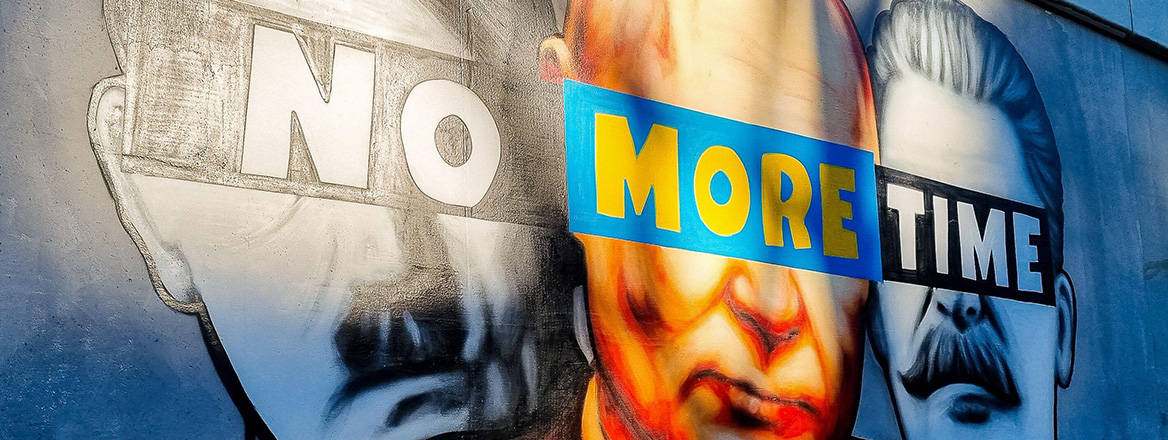Putin’s Historic Mistake: The Missing Russian War Narrative
Russia’s revived allegations of Ukrainian WMD activities are a product of Putin’s failure to justify his invasion.
Before Vladimir Putin’s assault on Ukraine, some of those senior Russians outside of government who traditionally explain the country’s foreign policy to the world were sceptical of the idea of a full-scale invasion. Yes, a Ukrainian ‘provocation’ might trigger a conflict, but Western warnings of all-out war were exaggerated, primarily because of the obvious costs to Russia.
Now that the worst has happened, it appears that the scepticism was genuine. As far as can be observed from the outside at this stage, many in the Russian foreign policy elite did not believe Putin would be so reckless. At no little personal risk, some researchers from respected and well-connected Russian institutions have since publicly called the invasion a mistake – even a crime – and argued that its costs outweigh the possible benefits.
One might say that Russian think tankers were never likely to receive notice of the precise invasion dates. But it is striking that the top Russian decision-makers did not appear to encourage friendly voices to lay the intellectual groundwork for full-blooded war and regime change, as opposed to a more limited intervention. There is a clear contrast, for example, with the months of messaging that preceded the US invasion of Iraq in 2003.
This is not to say that there is no effort at retrospective justification, or that lone elite voices will be enough to persuade the Russian public that the war is wrong. But Russians who previously dismissed the idea of an unprovoked invasion can hardly tell the world that it was either inevitable or morally justified, even if they believed such a thing. One respected journalist, Kommersant’s Elena Chernenko, was openly mocking Western predictions of war three weeks ago. Now she has been expelled from the Ministry of Foreign Affairs’ journalist pool after courageously organising an open letter against the invasion.
Putin has left his international partners, most importantly China, with no good arguments to defend what Russia has done
From this we can only infer that Putin and his inner circle believed that the invasion would be over before there was any real international persuasion to be done, or that the need for surprise outweighed the need for persuasion, or both. This was a catastrophic strategic error. At home, propaganda concealing the true nature of the war might well work when combined with harsh penalties for dissent and a crackdown on foreign media. But Russia has no chance of convincing Western countries to avoid confrontation, even if they stop short of direct military intervention. And Putin has left his international partners, most importantly China, with no good arguments to defend what Russia has done – hence Russia’s current efforts to manufacture some.
Let us imagine that Putin had limited himself to an operation to ‘liberate’ the ‘republics’ of Donetsk and Luhansk, even pushing beyond the existing boundaries to take all the territory claimed by the republics. It seems likely that there would have been influential Russian voices – familiar to Westerners as interpreters of the Kremlin – telling the world why the conditions in Donbas had made this inevitable; that Ukraine was to blame for not implementing the Minsk agreements; and that Western capitals should have forced Kyiv to make concessions. Some European voices, the so-called ‘Putin-Versteher’, would have helped amplify the message – not necessarily justifying military action, but suggesting that it could have been avoided had the West been more prudent.
Alternatively, imagine that Russian forces had stormed into Kyiv largely unopposed in a matter of days, as appears to have been the plan. This could perhaps have been presented as a self-justifying war. Lack of Ukrainian resistance would have been offered as proof of Putin’s case that the Ukrainian government was illegitimate, and that the country rightly belonged in Russia’s orbit. This is another reason why Ukrainians’ desperate fight has been so crucial: it has shown that Putin got their country wrong. (Perhaps if Ukrainian experts had been permitted to participate in Russian policy debates in the years following the annexation of Crimea, this fact might have percolated its way up the Russian chain of command.)
In the end, it is the immorality of Putin’s war that will ensure the strategic shifts of the past weeks are lasting ones
Now, Russia is left with an official line – its forces are conducting a special operation to ‘de-Nazify’ and ‘demilitarise’ Ukraine, and civilians are not being targeted – and punishment for citizens who contradict it. The Education Ministry has conducted online lessons to ram the message home. But so far, there do not seem to be many Russian strategic thinkers with credibility in the West trying to persuade the world that the war is wise and just. Nor are any serious Western voices attempting such a defence.
The absence of a believable justification for foreign audiences helps to explain why Russian officials are spending more time on fabricated allegations that Ukraine is conducting nuclear, biological and chemical weapons-related activities. The nuclear allegation appears to rest on nothing more than Ukrainian Prime Minister Volodymyr Zelensky’s remark at the Munich Security Conference in February that Russia’s violation of the Budapest Memorandum – as part of which Ukraine returned former Soviet nuclear weapons to Russia – meant that the agreement’s provisions were now in doubt. The biological weapons allegation is a recycling of existing Russian claims that laboratories in Ukraine which have received US funding are actually conducting weaponisation activities, echoing previous Russian propaganda against Georgia. Western governments are also warning that Russia is adapting disinformation tactics previously employed in Syria, this time to lay the rhetorical groundwork for a potential chemical attack, which Russia would attribute to a Ukrainian false-flag operation. There is no credible evidence to support Russia’s allegations.
While Western publics might be distractable, they are not fundamentally stupid. The much-vaunted Russian disinformation machine has no chance of defending the indefensible, at least in countries where free media can challenge the Russian line. Yes, it is hard self-interest and the sense of direct threat that has led European governments, including the famously hesitant Germany, to change their stance on military spending and deployments. But in the end, it is the immorality of Putin’s war that will ensure the strategic shifts of the past weeks are lasting ones. The world has seen what Russia has done, and has heard no good reason for it. If Putin thought that victory in Ukraine would justify itself, he could not have been more wrong.
The views expressed in this Commentary are the author’s, and do not represent those of RUSI or any other institution.
Have an idea for a Commentary you’d like to write for us? Send a short pitch to commentaries@rusi.org and we’ll get back to you if it fits into our research interests. Full guidelines for contributors can be found here.
WRITTEN BY
Dr Matthew Harries
Former Director of Proliferation and Nuclear Policy
- Jim McLeanMedia Relations Manager+44 (0)7917 373 069JimMc@rusi.org


